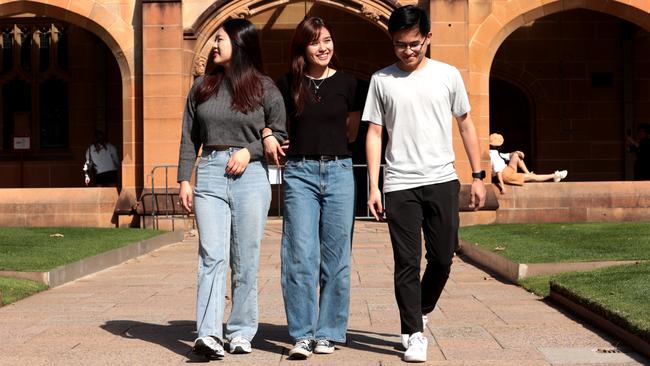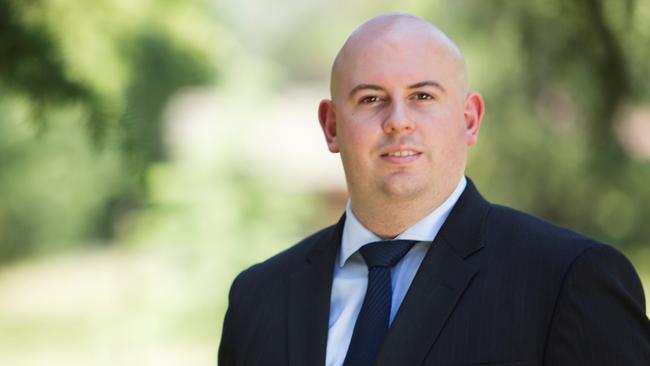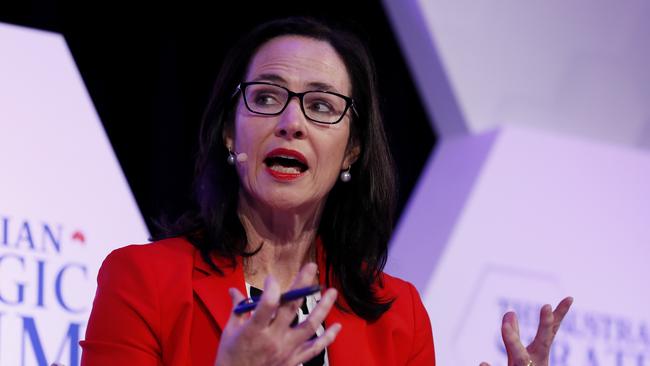International student caps risks leaving thousands in ‘immigration limbo’
Labor’s caps ‘raise more questions than answers’, a former Immigration Department executive says, with the move risking a possible surge in asylum-seeker applications.

You can now listen to The Australian's articles. Give us your feedback.
Labor’s international student caps “raise more questions than answers”, a former Immigration Department executive says, with the move to tighten policies around foreign students risking a possible surge in asylum-seeker applications as thousands of people end up in “immigration limbo”.
The government last week revealed universities would be allocated strict quotas for new international students from 2025, sparking outrage from the sector and state governments including Victoria, which warned the new measure would have “an adverse effect” on state finances.
Former Immigration Department deputy secretary Abul Rizvi lashed the caps – which limits new foreign students to 270,000 next year – as “a poor policy tool” and urged the government to “go back to the drawing board”.
“The caps are effectively the government telling each of the 1400 businesses in this industry (including universities, TAFEs and English language schools) how many new customers each business can have every year. That’s not how industry works in a market economy, it’s just madness,” he said.
“(Labor has) announced the student caps that will apply in 2025 – these are apparently designed to deliver on multiple objectives but it is quite unclear why the government considers capping is the best way to achieve these.”
While agreeing the surge in net migration between 2022 and 2024 “did have genuinely negative impacts in terms of housing, infrastructure and service delivery”, Mr Rizvi warned student caps and other Commonwealth reforms in higher education would not address the issue.
“The risk is that the surge has created a growing cohort of people, particularly students and temporary graduates, who may end up in immigration limbo, people who have invested significantly in the opportunity to secure permanent residence but are unable to secure a skilled job that leads to employer sponsorship or that there simply aren’t enough places in the permanent migration program,” he said.
“The number of temporary graduates in Australia is now well over 200,000 and rising rapidly. But it is not clear that student caps, with the government each year telling each provider how many new students they can have, is the best way to manage this.”
Universities also raised concern at the weekend with how the caps would impact the sector’s global reputation. “Australia’s universities are good faith, low risk, high quality actors in the international education market and it is important to consider what the collective actions of the government will mean for Brand Australia in both the short and long term,” Regional Universities Network chief executive Alec Webb said.

It is understood the number of international students attending many regional universities like Charles Sturt University and the University of Southern Queensland, in 2025 will increase with the caps, but the caps were still lower than anticipated.
Mr Webb said regional universities “do the heavy lifting in providing life-changing benefits of higher education to traditionally under-represented student cohorts” such as Indigenous students and those from low-SES backgrounds, yet were not appropriately funded by the government.
“And so (we) seek funding from additional sources, including cross-subsidising from international student fees,” he said.
Mr Rizvi said as it became more difficult for temporary graduates to get further visas onshore – following changes such as preventing temporary graduates going back to a student visa – the only option left to them would be “either to leave or to apply for asylum”.
“Many will apply for asylum simply because of the length of additional time with work rights in Australia that the asylum application would get them,” he said. “We have 114,000 asylum-seekers in community and the number will keep rising … the government announced $160m to try to address that; (it) won’t touch the sides.”

Education Minister Jason Clare said the government was “acting to protect the social licence of the (higher education) sector and strengthen its integrity”.
“Overall, universities will get around the same number of international students starting next year as they did last year,” he said.
“Arrangements for 2026 and beyond will deliver sustainable growth in international student numbers to ensure the sustainability of the sector into the future.”
Opposition education spokeswoman Sarah Henderson accused universities of “losing sight” of their chief responsibility to educate domestic students.
“Australian public universities, funded by the taxpayer, have a fundamental obligation to educate Australian students,” Ms Henderson said. “That is their job, and they receive many billions of dollars from the taxpayer to do that job.”
Responding to comments from Senator Henderson, Group of Eight Chief Executive Vicki Thomson said “our priority will always be educating a growing number of domestic students and it is absolutely wrong to suggest otherwise.”
“But we cannot walk away from the fact that successive governments have not only reduced funding to research and teaching but have also capped the amount of funding for teaching our domestic students. Quite simply we are being asked to do more with less,” she said.



To join the conversation, please log in. Don't have an account? Register
Join the conversation, you are commenting as Logout